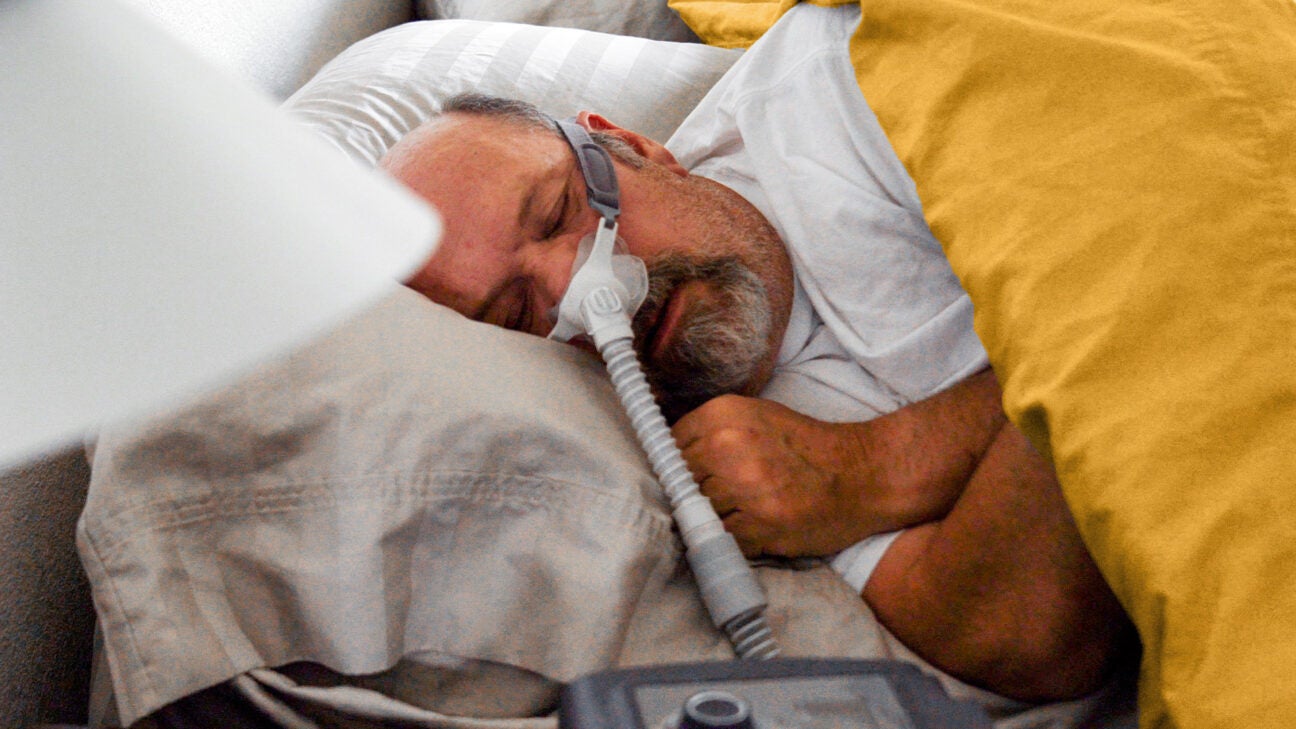
- Researchers are investigating how obstructive sleep apnea may affect cognitive health.
- Sleep apnea is a condition in which the body stops breathing for prolonged periods during sleep.
- Hypoxia due to lack of oxygen may affect the health of the brain and increase the risk of cognitive decline.
A new study finds that cognitive decline may be linked to obstructive sleep apnea.
According to a study published July 18 in JAMA Neurology, researchers discovered that people who did not have obstructive sleep apnea were less likely to have cognitive issues later on.
What is sleep apnea?
Sleep apnea is a condition in which the body stops breathing for prolonged periods during sleep.
During the day people have normal breathing patterns, however, at night the respiratory drive changes. In individuals with obstructive sleep apnea, there are periods where there is a lack of oxygen to the body, including the brain. While obstructive sleep apnea is unlikely to cause immediate severe health effects, it can lead to major and even life-threatening health effects if untreated.
The pause in breathing can lead to hypoxia, where the body does not have enough oxygen to function properly. If a person has sleep apnea that leads to periodic hypoxia it can affect the brain.
Researchers theorize that sleep apnea and hypoxia could increase the risk of dementia and poor cognition.
“It is thought that the fluctuations and oxygen throughout the night during sleep apnea cause damage to the lining of the small blood vessels, which causes blood flow to the brain to be less well regulated and thus, over time leads to various types of damage within the brain,” said Dr. James McGuirk, assistant professor in the Sleep Division in the Department of Neurology at Vanderbilt University Medical Center in Nashville, Tennessee.
McGuirk, who was not involved in this study, notes that obstructive sleep apnea may cause other major health issues that can ultimately increase the risk of cognitive decline.
How bad sleep impacts cognitive health
In this study, researchers pooled 5,946 participants who are at least 45 years old and did not have dementia or a stroke to participate in this study. Through statistical analysis, the participants in this study were evaluated and researchers noted that those with poor sleep and obstructive sleep apnea were more likely to have poor global cognition within 5 years.
The study also found that better sleep quality, good sleep consolidation, and normal sleeping times were associated with better cognition.
Although previous studies have shown that a longer time in REM sleep was associated with better cognition, this study did not show that.
Researchers found that there was not a link between dementia and specific sleep stages such as a sleep cycle where little time was spent in REM.
Longer time in REM sleep is thought to be scientifically beneficial, and researchers believe that further study would be useful to understand this relationship more.
McGuirk explains that “all stages of sleep are similarly important, as each of them are crucial to the function of sleep.”
“That does not mean that you spend an equal amount of time in each stage, but rather that the stages are all needed and together perform the necessary functions of sleep,” he said.
This study only looked at individuals who are 45 years and older who did not have stroke or dementia. However, younger individuals can be affected by poor sleep quality as well.
“Even in younger individuals…poor sleep quality and quantity and circadian dysfunction are associated with cognitive dysfunction,” said Justin Thomas, Ph.D., Assistant Professor and Director of the Behavioral Sleep Medicine Program and Co-Director of the Sleep and Circadian Research Core at the University of Alabama at Birmingham.
He notes, “poor sleep at younger ages is thought to be a risk factor for development of a number of adverse mental and physical health outcomes, including issues with cognition.”
Although the link between sleep and cognitive impairment is recognized, the direct understanding of the link is still being studied.
According to the research, poor sleep is “not among 12 modifiable risk factors outlined in the Lancet Commission on dementia prevention.”
How sleep helps your health
The benefits of good sleep go beyond just one’s mental capacity.
“Poor sleep quality/quantity and circadian dysfunction are linked to cardiovascular and metabolic health outcomes, as well as mental health outcomes across the lifespan,” Thomas explained told Healthline.
Experts believe that sleep apnea is a risk factor for dementia.
McGuirk said most people should shoot for around 8 hours of sleep a night, but “if one cannot get 8 hours, then they should try to maximize the benefit of what sleep they can get.”
How to get better rest
To get a better night’s sleep McGuirk recommends keeping your bedroom cool, dark, and quiet to help optimize your sleeping environment and also stick to a consistent sleeping schedule.
“I encourage the general public to be aware of symptoms of sleep disorders and to speak with their primary care physician if they are concerned they may have a sleep disorder,” said Thomas.
Sleep can be challenging, and its long-term effects can sometimes be devastating as research has shown.
Thomas encourages individuals with insomnia to attempt behavioral therapy before using methods such as cognitive behavioral therapy for insomnia.
Takeaway
A new study finds people with obstructive sleep apnea may be at higher risk of developing cognitive issues later on.
Dr. Rajiv Bahl, MBA, MS, is an emergency medicine physician, board member of the Florida College of Emergency Physicians, and health writer. You can find him at RajivBahlMD.
Obstructive Sleep Apnea May Increase the Risk for Cognitive Decline
Source: Pinoy Lang Sakalam



0 (mga) komento:
Mag-post ng isang Komento